Romantic Encounters in Lijiang
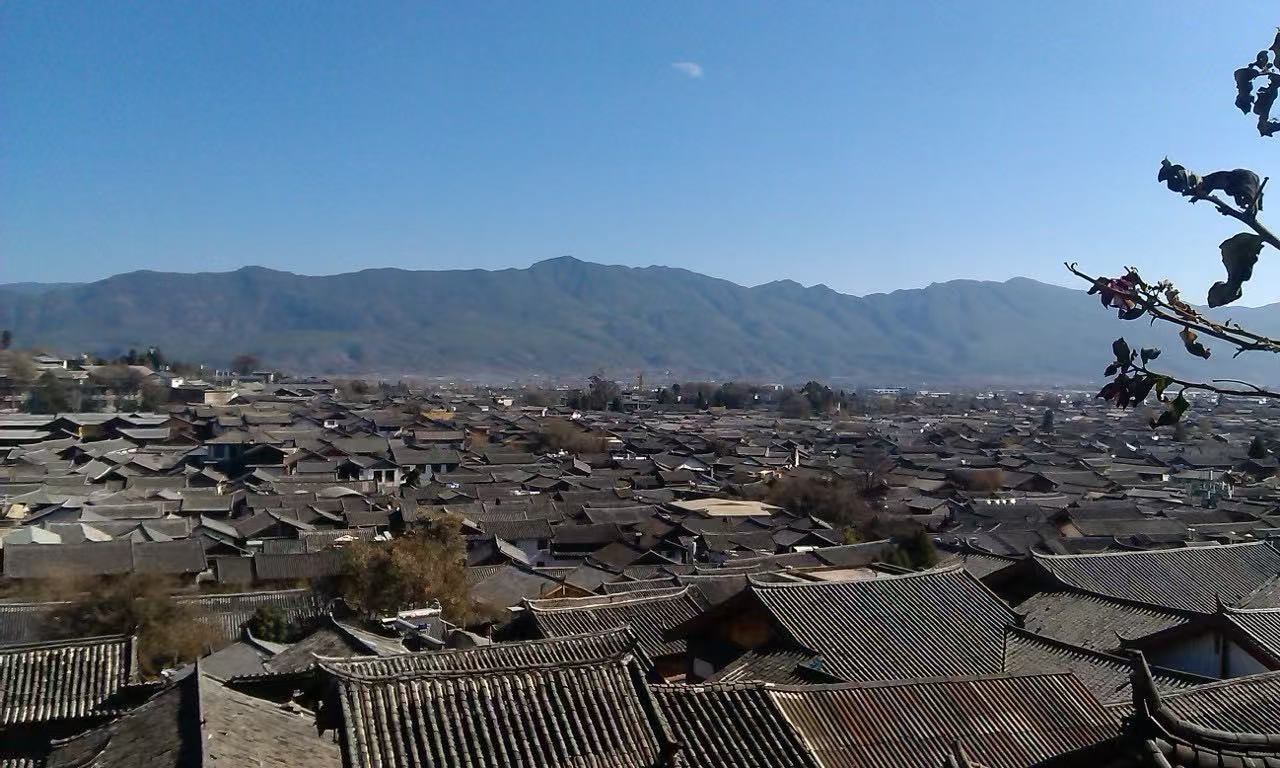
On December 28, 2013, I flew from Beijing to Lijiang, a place I had long wanted to visit but missed due to various reasons.
Speaking of Lijiang, I didn’t have any particularly strong feelings about it before. I just knew it was a sort of paradise, free from the crowds and noise of big cities, without traffic jams or smog. People there lived their small lives leisurely, as if only in Lijiang could one find spiritual purification. However, I had also heard that it was heavily commercialized. With these two conflicting impressions, I arrived at this legendary resort.
To be honest, it’s not so much that I loved Lijiang as that I encountered this place with longing and yearning. Looking down at Yunnan’s land from the plane—at the snow-capped mountains and terraced fields—I fell in love with this place even before landing, this “South of the Colorful Clouds.” Yunnan holds many stories and people for me; two friends from my school days were from Kunming. But I came to Yunnan, to Lijiang, alone, without telling anyone. It felt like being a sudden intruder breaking into someone else’s dream, wandering around, looking here and there, free and filled with secret joy.
Back to Lijiang—it was the first ancient town I had ever visited. My first impression was of Yunnan’s ethnic minorities: their skin was dark. Due to the high altitude and low latitude, the sunlight is intense, so over time, people’s skin has become dark. In terms of facial features, they are quite different from the Han people, with unique shapes and features characteristic of ethnic minorities. I was curious and really liked the people here. Most of them were simple and honest, with much more peace and serenity on their faces, especially compared to tourists from big cities. I remember seeing a middle-aged man pushing a bicycle in Dayan Ancient Town; his simple face and pure eyes remain vivid in my memory, as if such a face could only appear in post-liberation movies, completely out of place in this secular and materialistic world.
Right now, I’m playing songs by Xiaoqian from Lijiang. In Lijiang Ancient Town, there are shops selling African drums and her CDs everywhere—you can’t help but know her, as if she were the town’s business card. The first time I heard A Moment, the lively rhythm combined with the drumbeats was really pleasant. I unknowingly fell in love with the song and bought the CD. I had planned to buy an African drum too, but it was too big to carry, so I gave up.
It’s true that Lijiang Ancient Town is highly commercialized, but that doesn’t affect my love for it at all. I think you can’t just focus on its commercial side, feeling sad and disappointed as if you’ve been cheated out of the paradise in your heart. More importantly, you need to learn to perceive its charm. You might only feel its beauty if you truly appreciate it. After all, how would tourists survive without commerce? It’s said that tens of millions of tourists pour into Lijiang Airport every year—without commercialization, that would be impossible.
Those days were calm, with a pale blue sky and even no clouds. For someone who had lived in Beijing for years, the joy in my heart was beyond words. I loved going to Lion Mountain to overlook the entire ancient town and even see Jade Dragon Snow Mountain in the distance. This mountain is interesting: it’s just there, and you catch glimpses of it inadvertently, luring your curiosity. During my stay, I spent several afternoons at a place called Taohua Island on Lion Mountain. After lunch, I’d drink water, read on my Kindle, with the ancient town to my right and mountains ahead. The sun was strong, but it didn’t stop me from idly leaning on the sofa, reading, and enjoying the moment. There weren’t many people, and it was so quiet that I forgot the time, listening to soft music—it was extremely pleasant.
I remember wandering casually in the ancient town, seeing all kinds of tourists, beautiful women, and dogs. When hungry, I ate; I walked around freely, and when tired, I sat by the roadside. I watched Naxi grandmothers dance in Sifang Street, heard singing from surrounding bars, saw people leading horses, tourists taking photos with eagles, and Jiahua’s flower cakes…
In the evenings after dinner, I’d sit by the charcoal fire in Brother Peng’s living room, chatting with a group of people—it was fun and warm. I remember when I first stayed there, there was a girl a few years younger than me and a guy around my age. We chatted about all sorts of things: where we’d been, if it was fun, how to get around, and how to avoid being cheated. The guy left first, and we watched him pull his luggage away. For tourists, this inn was just a stopover. People returned from different places to rest, then maybe left again the next day, only to return in a few days. It was a cycle, with groups coming and going. The girl left in the afternoon, but I was out wandering and didn’t get to say goodbye.
After staying at Brother Peng’s for a while, I got to know the nearby shop owners. We’d gather there to chat in the evenings. Sometimes I thought: these people and I had no deep connections—we were just passers-by. But on a journey, you often put such thoughts aside, taking the initiative to get close and chat. It’s like a microcosm of human grouping; after all, when away from home, people need care and someone to talk to.
I wandered in the ancient town for days, and sometimes I still got lost. So I stuck to a few familiar main roads. I didn’t like using mobile phone navigation—it would take away the fun. I didn’t even bring a phone charger, let alone a razor. After nine days, my beard grew so long that I almost felt embarrassed to say I wasn’t an uncle.
There’s a public toilet on Lion Mountain, not very modern—with a big ditch in the middle and water flushing from one end. My school dormitory had similar ones, maybe to save water? Anyway, I hadn’t used such a toilet in years. One lazy afternoon, I tried it again, and hearing the school bell ring for the end of class nearby, it felt like I was suddenly transported back to some sunny childhood days.
Many girls in the ancient town were taking photos in distinctive ethnic costumes, which was really eye-catching. In Lijiang, you can be as beautiful as you want.
Whether you like Lijiang depends on the person. If, like me, you look at everything here with curious eyes and feel everything with a relaxed mood, you’ll surely like it too.
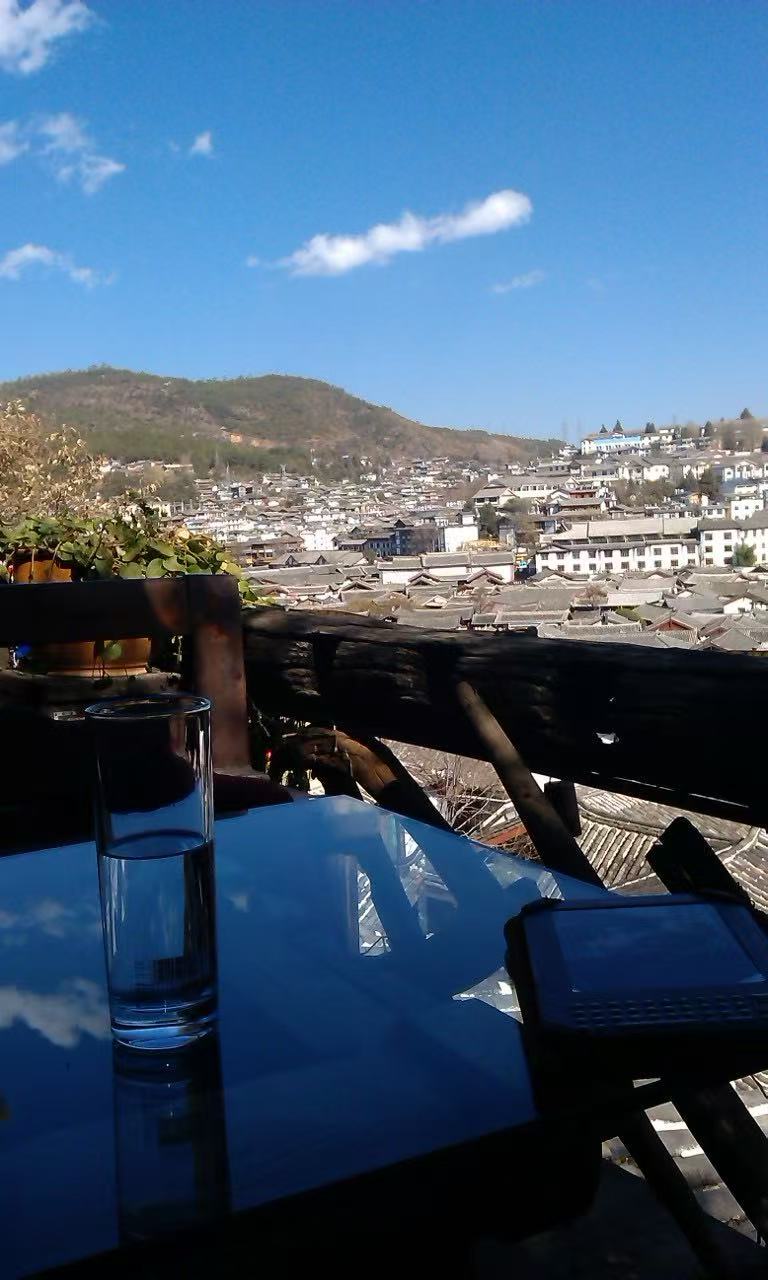
2 Female HongKong Travelers
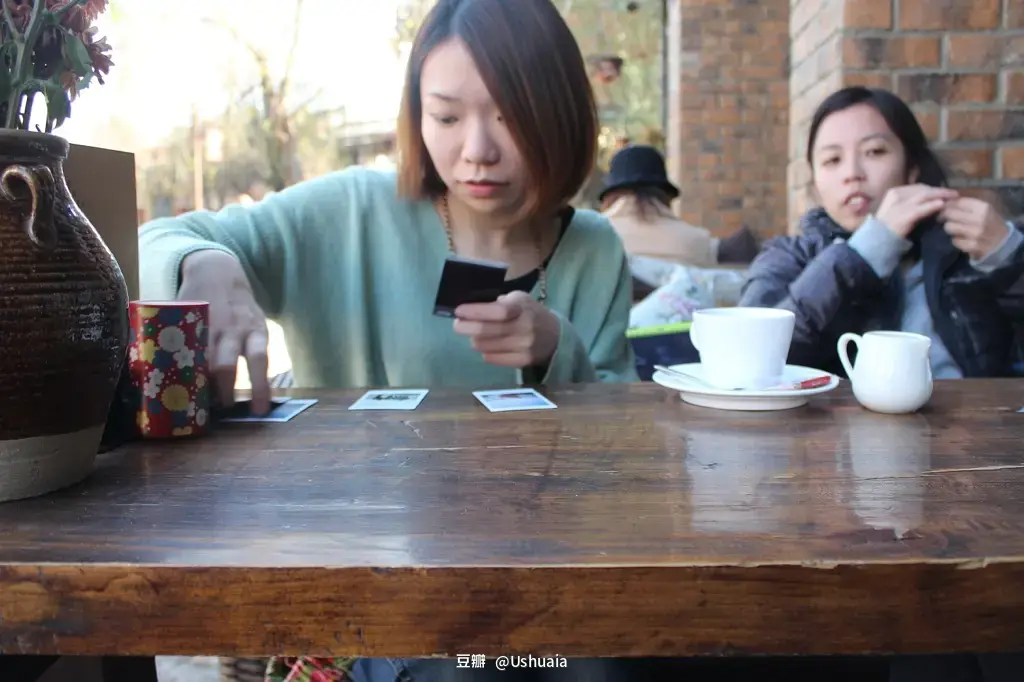
These are two girls from Hong Kong. I met them when we hired a car to go to Lashi Lake.
When they got in the car, I jokingly said, “You’re going to Shangri-La too?” and they both froze for a second.
Later, I found out they were from Hong Kong. Since I’d been teaching myself Cantonese, it was the perfect chance to ask them for tips.
The more we talked, the more I realized that the biggest barrier between people is often the one we set for ourselves, not geography or city boundaries. My previous impressions of Hong Kong people were a mix of good and bad, but those were formed in Hong Kong itself. The environment there made me rush to conclusions, just to get a quicker grasp of the city. But here, on the mainland, away from that context, I finally had the time and energy to truly understand what Hong Kong people are like.
Both of them were very friendly and smiled a lot. Their Mandarin wasn’t great, but they tried hard to speak it. They still talked to each other in Cantonese, but I could understand some of it, so it never felt awkward. As we opened up more, the funniest thing was that eventually, they’d speak to me in Mandarin while I replied in Cantonese.
We went to Lashi Lake together, rode horses, rowed boats, and visited Shuhe Ancient Town and Baisha Ancient Town. Qiao was with us too. We took lots of photos. Qiao even lost his phone by accident, but luckily it was in the hired car. The driver was kind enough to take it straight back to our inn. On the way back, we took a local bus but had no idea how to transfer back to the ancient town. We ended up asking for directions to make the transfer—it was quite an adventure.
I remember Min’er told me on the way back that relationships between people in Hong Kong aren’t as close as they are here. She said if people live in the same building, they might not even know who their neighbors are, unless they live in low-rise houses where neighbors might get to know each other. That made me think of Beijing now. I secretly wondered if she was sharing this because she felt comfortable with us after a day of hanging out, enjoying how open and sincere we all were.
Min’er works in Hong Kong, and Jane is from Australia. Jane was an exchange student at Tsinghua University for a year. They once visited Beijing together in winter—apparently, it was snowing, and they were the only ones on the Great Wall that day.
I had to take a train to Kunming that night, so we had a meal of braised chicken together. I forgot to tell the boss not to put chili, though—Hong Kong people can’t handle spicy food, and neither can I. The whole chicken was probably too big for four people. Jane asked if we were being wasteful, and I felt a twinge of guilt. It’s just that meeting up like this is so rare, and we were about to part ways. Indulging a little felt okay, and frugality and rationality took a backseat to impulse. I wondered if I should feel bad about that.
I always value these temporary friendships formed during travels. At least I do. When people share similar interests and get along well, choosing to walk the journey together is such a precious 缘分 —simple and sincere, which makes it all the more valuable.
After the meal, I rushed back to pack my things, not wanting to keep my friend from Foshan waiting. I left directly by car without getting to say goodbye, but as the car passed the restaurant, I saw the three of them chatting and smiling. For me, catching that warm scene from the side felt like a perfect ending. Still, I couldn’t help worrying, so I called them to say goodbye properly. If we get the chance, we’ll meet again—in Beijing, Hong Kong, or Australia.
3 Female Soldiers
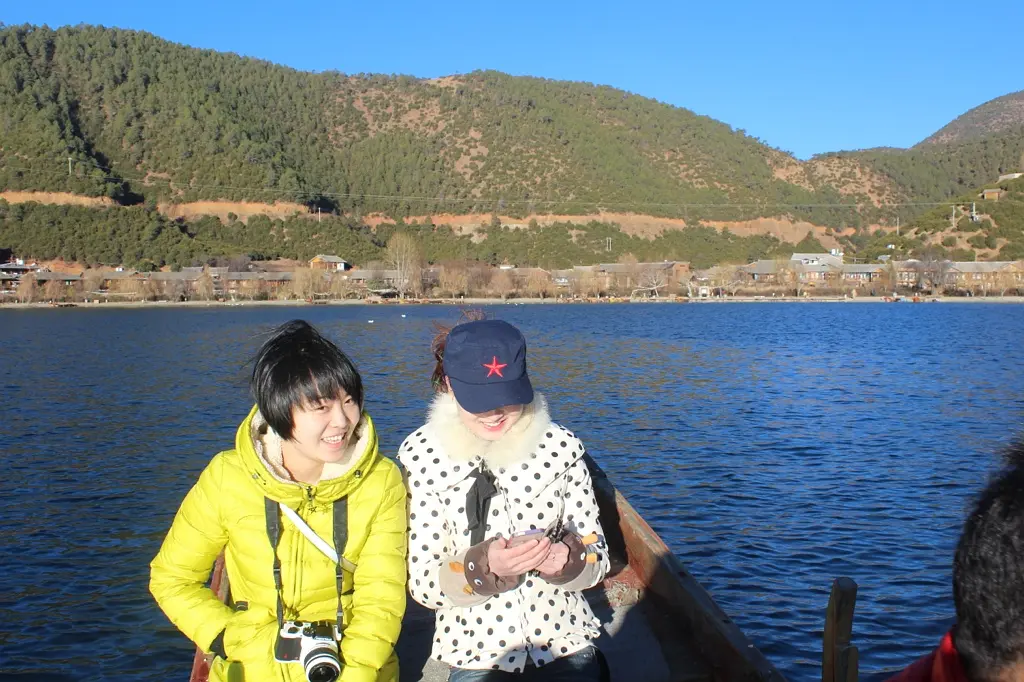
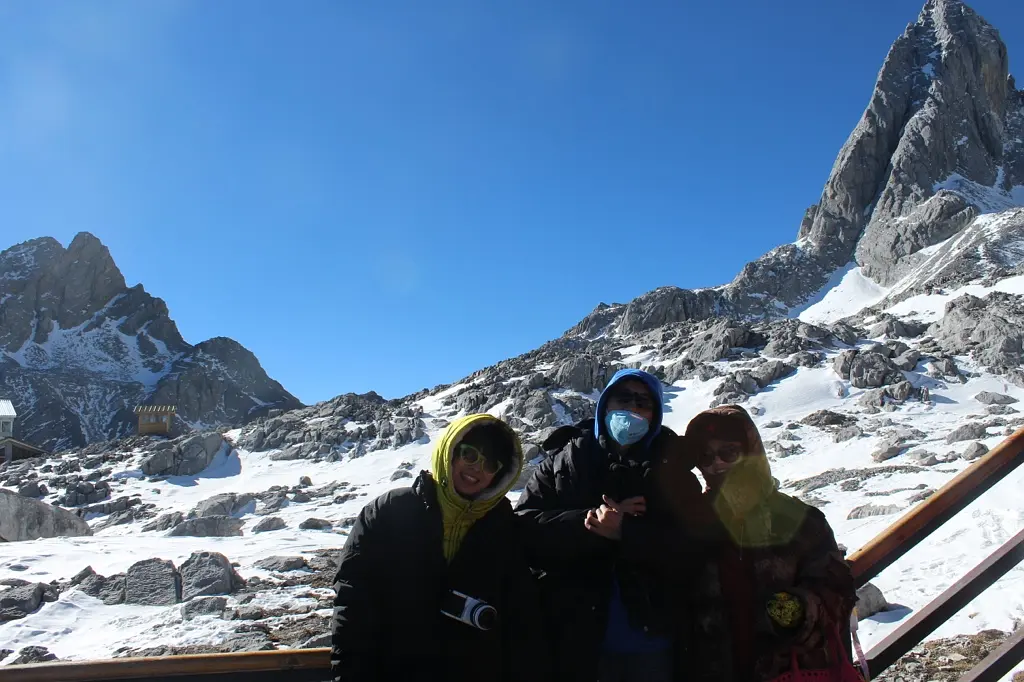
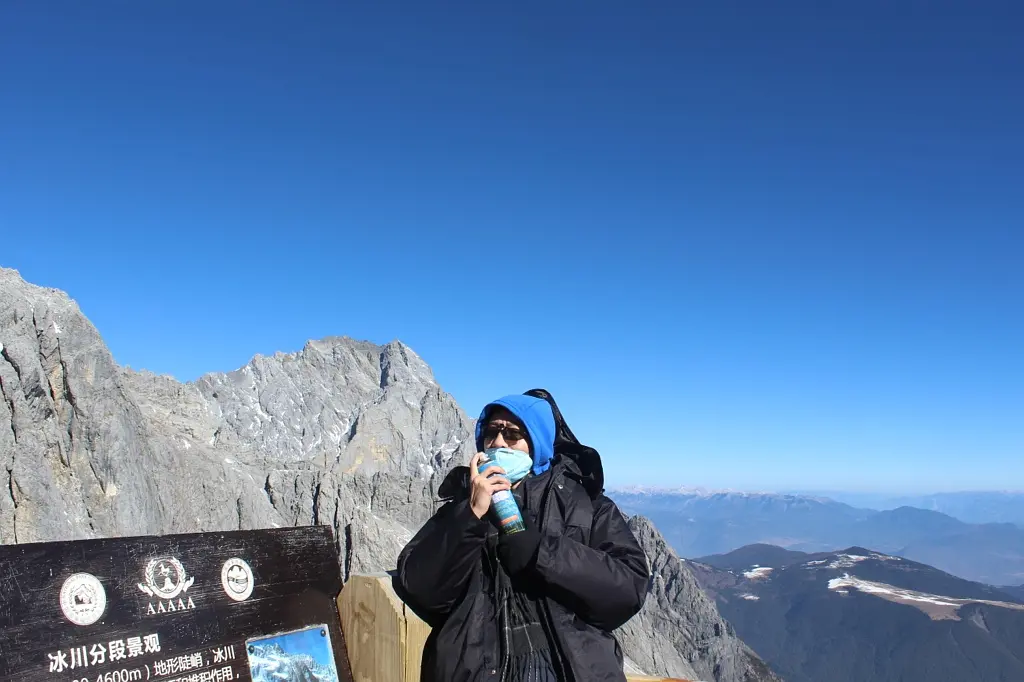
On a journey, you watch the scenery, and you watch the people too.
They say Lijiang is the “city of romantic encounters”—I won’t pass judgment on that, but I did meet some wonderful friends, including female friends.
Bobo, Xiaoxiao, and Lili—three female soldiers who’d just retired from the military in Guangzhou. By chance, we rented a car together to Jade Dragon Snow Mountain, climbed it together. The summit, at 4,680 meters—even though we didn’t hike for long, there was a sense we were in it together, laughing, taking photos, young and carefree. Later, we went to Ganhaizi, where I saw the greenest, bluest, most vibrant lake I’d ever laid eyes on, stunningly beautiful. The girls took photos there, smiling like flowers—truly lovely.
That night, we returned to the ancient town, freshened up, and had a black goat hotpot together. Along with their friends’ friends and some local pals, I ended up being treated to a lavish mutton feast. Bobo, ever thoughtful, snuck off halfway through to pay the bill, leaving the local friends quite embarrassed—they hadn’t expected the guest to foot the bill. Sigh, these female soldiers really hold their own.
The next day, we went to Lugu Lake together. The road was bumpy and long, but chatting among ourselves and bantering with the guide made the time fly. It was December 31st, so we decided to ring in the new year together. At a guesthouse by the beautiful Lugu Lake, we watched Hunan TV’s New Year’s Eve concert—what can I say, they’re Hunan girls after all. New Year’s Eve makes people a little reckless, but it stayed just talk. Xiaoxiao announced she was heading back early to take a shower, and we dispersed. Honestly, I couldn’t keep my eyes open either—I crashed around 10 PM, exhausted.
On the third day, we rowed boats, fed seagulls, took photos, and daydreamed. Time passed quickly, and by 10 AM we were driving back to Lijiang.
We ate lunch on the road both ways—simple meals in shabby places, no choices to be had, but we made the best of it. Xiaoxiao ate three eggs I’d bought; that Hunan girl insisted on dipping everything in chili. I remembered her slouching in her seat on the way there. When I asked what was wrong, she said in her Hunan accent, “My butt hurts”—it was really cute.
Lili had a cold and felt unwell on the way to the lake, sleeping most of the trip. On the way back, Bobo sat next to me, chatting. When she got sleepy, she even asked to lean on my shoulder to nap. She said she’d visit Beijing this year—I hope I get to see her again.
Back in Lijiang, we had one last dinner together: cured pork ribs. Xiaoxiao, that rascal, snuck off to pay again. I couldn’t scold her, so I just said “annoying” to cover all the feelings swirling inside. She laughed and said, “Next time, next time.” Ha, I hope there is a next time—but will there be?
They’re all good kids, good daughters. I walked with them in the ancient town on our last night. They bought stacks of flower cakes to mail home as gifts, and had engraved ox bone pendants made for people they cared about. I remember Bobo gave Xiaoxiao one that said “May your smile never fade.” Those two were such close friends—they told me that when they first joined the military, they weren’t allowed to talk, so they’d just exchange glances, understanding each other without words. Beneath their gentle looks, they trained with 30 jin of weight on their backs. Simple souls, they had the boldness of soldiers and their sweetness: Xiaoxiao, who drank without hesitation; Bobo, who loved taking photos; and thoughtful Lili.
I think of that last night—Bobo, Xiaoxiao, and I sitting at a tourist service point in the ancient town. People kept coming up to ask for directions, and we took pride in guiding them, recommending spots we’d visited—no one knew we were just tourists too. With “Wild Lilies Also Have Their Spring” drifting over from a bar behind us, the three of us leaned against each other, swaying and singing loudly. Sigh, I really miss that.
Bobo texted me when she got to the airport to say she was safe. Xiaoxiao, once home, reminded me to watch my belongings on the overnight train. Honestly, after they left, I felt lonely in Lijiang, missing them terribly—missing those three days of simple joy together. I walked the places we’d wandered: the inn, Mu Mansion, Sifang Street, Jiahe Flower Cake Shop, the little wooden chairs, the engraving store. Every sight brought them to mind, and it was hard to bear. That day, I messaged Bobo on WeChat, saying I missed them all and wished they’d come back. I think I truly cared—hadn’t felt this way in a long time, the kind that makes your eyes water and your throat ache.
本文首次发布于 StuartLau’s Blog, 转载请保留原文链接.
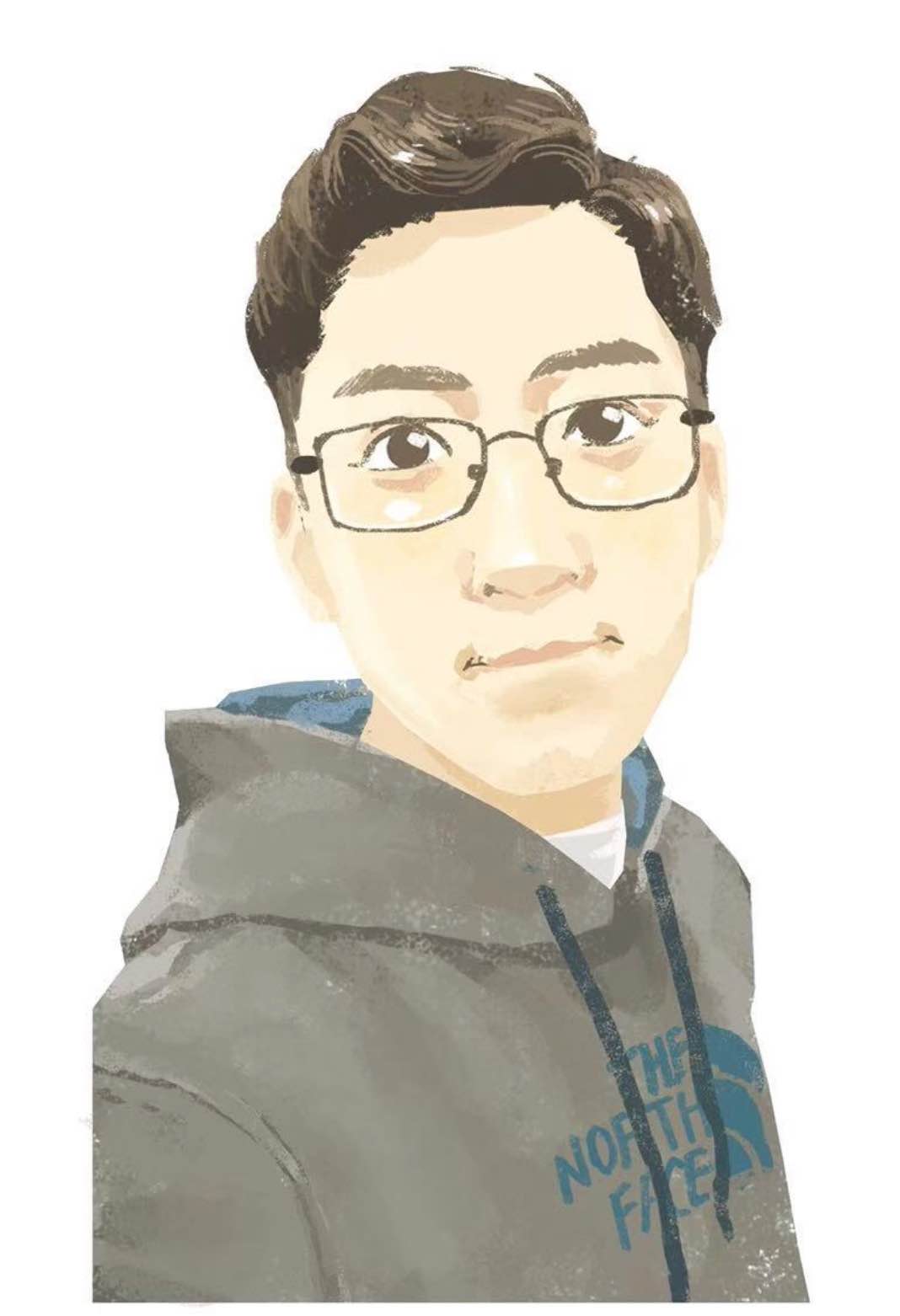
 RedNote
RedNote Douban
Douban